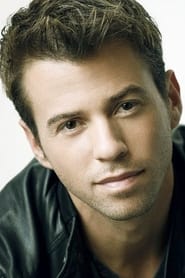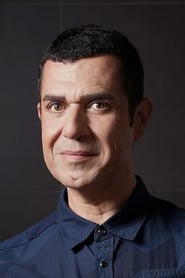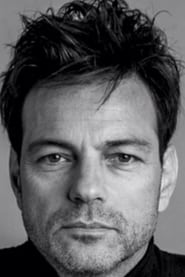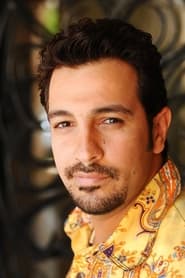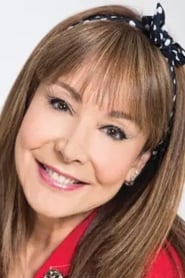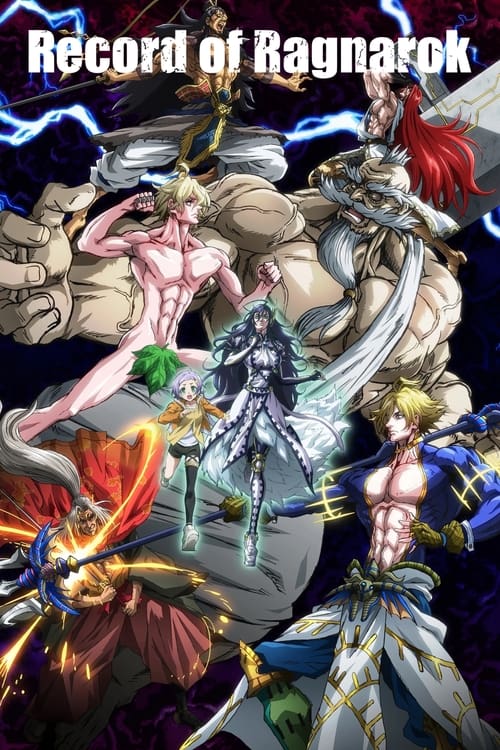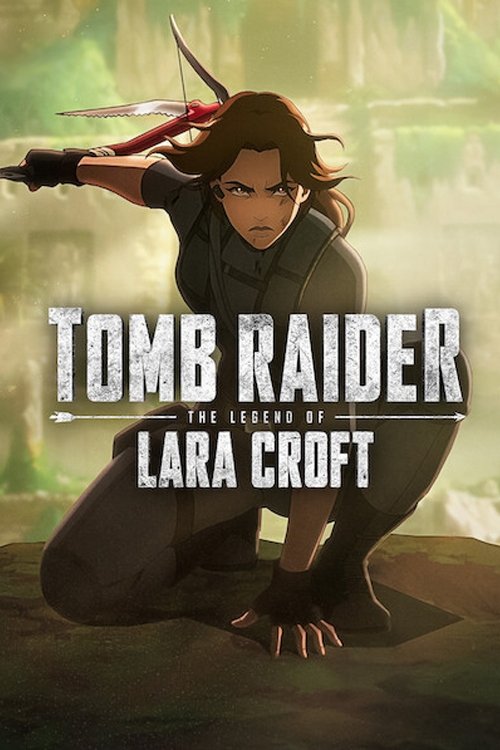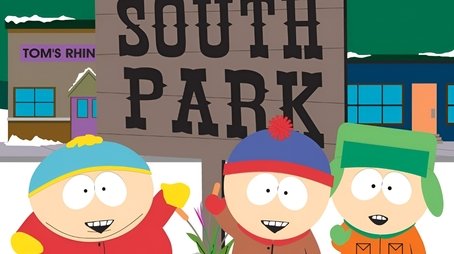
Ask Your Own Question
What is the plot?
In Episode 33 of Rosh Gadol, the episode opens with a tense atmosphere in the main character's home. The protagonist, David, is seen pacing back and forth, visibly anxious about the upcoming meeting with his estranged father, who has recently re-entered his life. The camera captures David's furrowed brow and clenched fists, emphasizing his internal conflict between wanting to reconnect and the pain of past abandonment.
As the scene shifts, we see David's mother, Miriam, preparing a meal in the kitchen. She is quietly worried about the meeting, and her expressions reveal a mix of hope and fear. She tries to reassure David, but her voice trembles slightly, indicating her own unresolved feelings about the situation. David brushes off her concerns, determined to face his father alone.
The next scene transitions to a local café where David and his father, Eli, are set to meet. The café is bustling with patrons, and the sound of clinking cups and chatter fills the air. David arrives first, his heart racing as he scans the room. When Eli finally walks in, the atmosphere shifts; the camera focuses on David's face, capturing a blend of anger and longing. Eli approaches with a tentative smile, but David's body language is closed off, arms crossed tightly.
Their conversation begins awkwardly, with Eli attempting to explain his absence over the years. David interrupts, his voice rising with frustration as he demands answers. The tension escalates, and Eli's attempts at reconciliation only seem to deepen David's resentment. The scene is charged with emotion, and the audience can feel the weight of their shared history hanging in the air.
As the argument reaches a boiling point, David stands up abruptly, knocking over his chair. He storms out of the café, leaving Eli behind, visibly hurt and confused. Outside, David takes a moment to collect himself, leaning against a wall as he battles with his emotions. The camera captures the tears welling in his eyes, showcasing his vulnerability.
The next sequence shifts to a flashback, revealing a pivotal moment from David's childhood. We see a younger David waiting for Eli to pick him up for a planned outing, only to be left waiting for hours. The scene is poignant, with the young David's hopeful expressions turning to despair as the sun sets. This flashback serves to deepen the audience's understanding of David's pain and the roots of his anger.
Returning to the present, David finds solace in his friends, who gather at a local bar. They notice his distress and rally around him, offering support and distraction. The camaraderie is palpable, with laughter and shared stories momentarily lifting David's spirits. However, the underlying tension remains, as David's thoughts drift back to his father.
The episode then cuts to Eli, who is shown sitting alone in the café, reflecting on his choices. His expression is one of regret, and he pulls out an old photograph of David as a child. This moment reveals Eli's internal struggle and desire to make amends, setting the stage for his next decision.
In the final act of the episode, David receives a text from Eli, asking to meet again. After a moment of hesitation, David decides to confront his father one last time. The scene shifts to a park where they agree to meet. The atmosphere is tense, with both characters visibly on edge. As they sit on a bench, the conversation begins with a heavy silence.
Eli opens up about his regrets and the reasons for his absence, expressing a genuine desire to reconnect. David listens, his expression softening slightly, but he remains guarded. The dialogue is raw and emotional, with both characters revealing their vulnerabilities. David ultimately decides to give Eli a chance, but he makes it clear that trust will take time to rebuild.
The episode concludes with a shot of the two men sitting side by side, a tentative bridge forming between them. The camera pulls back, capturing the park's serene environment, contrasting with the emotional turmoil they both face. The screen fades to black, leaving the audience with a sense of unresolved tension and the possibility of healing.
🔥 Trending TV Shows Now
Browse All TV Shows →What is the ending?
In the ending of "Rosh Gadol," Season 4, Episode 33, the main characters face the consequences of their actions throughout the season. Tensions reach a climax as personal conflicts come to a head. The episode concludes with a mix of resolutions and unresolved issues, leaving the characters at a crossroads in their lives.
As the episode unfolds, we see the characters grappling with their choices. The protagonist, who has been on a journey of self-discovery, finally confronts their past mistakes. This confrontation leads to a pivotal moment of reckoning, where they must decide whether to seek forgiveness or continue down a path of isolation. The episode ends with a sense of hope, as the protagonist takes a step towards reconciliation, but the future remains uncertain.
In a parallel storyline, another key character faces the fallout of their ambition, leading to a moment of vulnerability. They realize the cost of their pursuit and must choose between their career and their relationships. The episode closes with them making a significant decision that could alter their path moving forward.
The fates of the main characters are intertwined, with some finding closure while others are left with lingering questions. The episode leaves viewers contemplating the complexities of human relationships and the impact of choices made along the way.
As the final episode of "Rosh Gadol" unfolds, the atmosphere is thick with tension and anticipation. The camera pans over a dimly lit room where the protagonist, Alex, sits alone, reflecting on the tumultuous events that have transpired throughout the season. The weight of his decisions hangs heavily on his shoulders, and the internal struggle is palpable. He knows he must confront his past mistakes, particularly the fallout from his strained relationships with his family and friends.
Scene 1: The Confrontation The scene shifts to a family gathering, where Alex's estranged brother, David, is present. The air is charged with unspoken words and unresolved feelings. As the two brothers lock eyes, the tension escalates. Alex stands up, his heart racing, and finally voices the hurt and betrayal he has felt. David, taken aback, responds with his own grievances, revealing the deep-seated issues that have plagued their relationship. The emotional exchange is raw, filled with anger, regret, and a desperate need for understanding. The camera captures the pain etched on their faces, emphasizing the emotional stakes of their confrontation.
Scene 2: A Moment of Vulnerability Meanwhile, Sarah, a key character who has been pursuing her career ambitions at the expense of her personal life, finds herself at a crossroads. In her office, she receives a call from her best friend, who expresses concern over Sarah's neglect of their friendship. The conversation is a wake-up call for Sarah, who realizes that her relentless pursuit of success has come at a significant cost. The scene is interspersed with flashbacks of happier moments shared with her friend, highlighting the stark contrast between her past and present. The emotional turmoil is evident as Sarah grapples with the realization that she must make a choice between her career and the relationships she holds dear.
Scene 3: The Decision As the episode progresses, both Alex and Sarah reach pivotal moments of decision. Alex, after a heartfelt conversation with David, decides to extend an olive branch, suggesting they start anew. The scene is filled with a sense of hope as the brothers embrace, signaling a potential reconciliation. The camera captures the tears in their eyes, symbolizing the release of years of pent-up emotions.
In a parallel moment, Sarah stands in front of her office window, contemplating her future. The city skyline looms in the background, representing both her ambitions and the life she has neglected. With a deep breath, she picks up her phone and calls her friend, expressing her desire to reconnect. The scene is poignant, showcasing her vulnerability and the importance of prioritizing relationships over ambition.
Scene 4: The Uncertain Future The episode concludes with a montage of both characters moving forward. Alex and David are seen sharing a meal, laughter echoing in the background, while Sarah meets her friend at a café, their conversation filled with warmth and understanding. However, the camera lingers on their faces, revealing a hint of uncertainty about what lies ahead. The final shot captures Alex looking out at the horizon, symbolizing the journey of healing and the challenges that still await him.
As the credits roll, viewers are left with a sense of closure for some characters, while others remain at a crossroads, emphasizing the complexities of life and the ongoing struggle for connection and understanding. The episode encapsulates the themes of forgiveness, the cost of ambition, and the importance of relationships, leaving a lasting impression on the audience.
Is there a post-credit scene?
In "Episode 33" of Rosh Gadol, there is indeed a post-credit scene that adds an intriguing layer to the episode's narrative.
As the credits roll, the screen fades back in to a dimly lit room where a solitary figure sits at a desk cluttered with papers and photographs. The camera slowly zooms in on the figure, revealing it to be one of the series' recurring antagonists, who has been absent for several episodes. The character's expression is one of deep contemplation, a mix of frustration and determination evident in their furrowed brow.
The scene shifts to a close-up of the photographs on the desk, which depict various characters from the series, including the protagonists and their recent struggles. The antagonist picks up one of the photos, tracing a finger over a particular character's face, a smirk forming as they whisper, "This isn't over yet."
Suddenly, the sound of a door creaking open interrupts the moment, and the antagonist quickly hides the photographs, their demeanor shifting to one of calm composure. A shadowy figure enters the room, and the two exchange a knowing glance, hinting at a potential alliance or a new scheme brewing. The scene ends with a lingering shot of the antagonist's smirk, leaving viewers with a sense of foreboding and anticipation for the conflicts to come in future episodes.
This post-credit scene effectively sets the stage for upcoming tensions and character dynamics, reinforcing the show's themes of rivalry and the complexity of relationships.
What is the significance of the flashback scenes involving the character of David?
The flashback scenes featuring David provide crucial context for his motivations and the choices he has made. These moments reveal his past struggles and the reasons behind his current actions, deepening the audience's understanding of his character and the impact of his decisions on those around him.
How does the character of Eli respond to the challenges he faces in this episode?
Eli grapples with feelings of betrayal and frustration as he learns about a secret that has been kept from him. His emotional turmoil is depicted through intense scenes where he isolates himself, reflecting on his past decisions and the impact they have on his current situation.
What significant event occurs between the characters Yael and Amir in this episode?
In Episode 33, Yael confronts Amir about his recent behavior, leading to a heated argument that reveals deep-seated insecurities and unresolved feelings between them. This confrontation serves as a pivotal moment for both characters, forcing them to reevaluate their relationship.
What role does the character of Tali play in the unfolding drama of Episode 33?
Tali acts as a mediator in the conflicts between her friends, particularly between Yael and Amir. Her attempts to bring peace highlight her loyalty and compassion, but also reveal her own struggles with feeling caught in the middle of their tumultuous relationship.
How does the episode explore the theme of trust through the interactions between the main characters?
Trust is a central theme in Episode 33, as various characters confront betrayals and secrets. The interactions between Yael, Amir, and Eli showcase the fragility of their relationships, with each character's emotional state reflecting their struggle to rebuild trust after revelations that shake their foundations.
Is this family friendly?
"Rosh Gadol," season 4, episode 33, contains several themes and scenes that may be considered objectionable or upsetting for children or sensitive viewers.
-
Emotional Conflict: The episode features intense emotional confrontations between characters, which may be distressing for younger viewers. The portrayal of family disputes and personal struggles can evoke strong feelings.
-
Themes of Betrayal: There are elements of betrayal and mistrust among characters, which could be unsettling for children who may not fully understand the complexities of adult relationships.
-
Dramatic Tension: The episode builds significant dramatic tension, with moments that may induce anxiety or fear, particularly in scenes where characters face difficult choices or moral dilemmas.
-
Mature Themes: Discussions around loyalty, sacrifice, and the consequences of one's actions are prevalent, which may be challenging for younger audiences to grasp.
-
Visuals of Conflict: There may be scenes depicting conflict that, while not graphic, could be interpreted as aggressive or threatening, potentially causing discomfort.
These elements contribute to a narrative that, while rich in character development and storytelling, may not be suitable for all viewers, particularly younger children or those sensitive to emotional distress.


